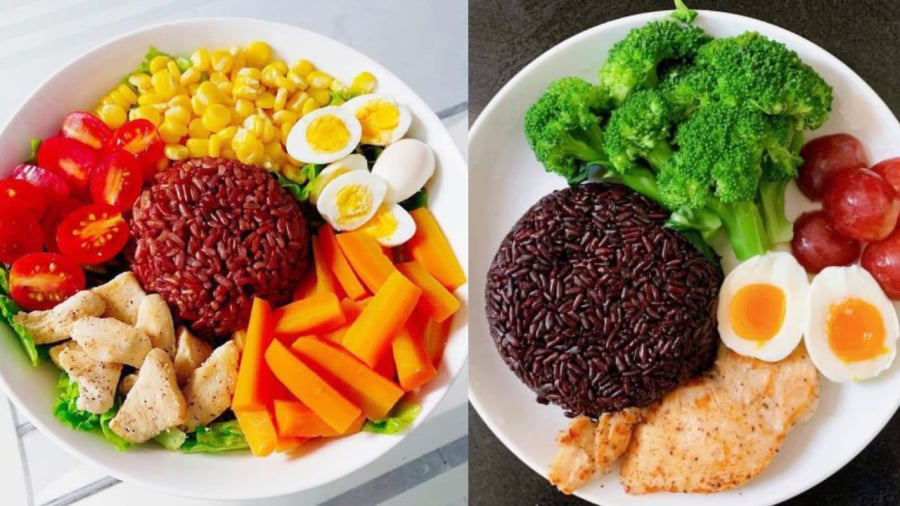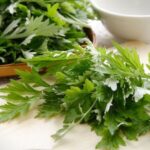What is Brown Rice?
Brown rice is rice that has only had the outer husk removed, leaving the nutrient-rich bran layer intact. This bran layer provides a plethora of nutrients, including fiber, protein, vitamins E, B6, and B1, carbohydrates, magnesium, zinc, and manganese. Due to its higher nutritional content, some people prefer brown rice over white rice.
Despite its slightly higher nutritional value, it is not necessary to replace all white rice in your daily meals with brown rice. It is advisable to adjust your rice consumption according to your individual health needs and preferences.
Health Benefits of Brown Rice
- Weight Loss Support
The high fiber content in brown rice promotes a longer-lasting feeling of fullness compared to white rice. Therefore, those aiming to lose weight often opt for brown rice. The cooked texture of brown rice is chewier than white rice, encouraging more thorough chewing before swallowing. This also contributes to a prolonged sense of satiety and reduced cravings for snacks.
- Cardiovascular Benefits
Brown rice is a nutritious choice, especially for heart health. The abundance of fiber helps prevent cardiovascular issues such as heart disease and arterial blockages. Additionally, the presence of minerals like magnesium in brown rice further contributes to cardiovascular well-being.
- Nutrient-Dense
Brown rice contains natural oils that help normalize blood cholesterol levels. The high fiber content also plays a role in preventing colorectal cancer. Manganese, found in significant amounts in brown rice, is essential for the body and can meet up to 80% of our daily manganese needs in just one cup. This mineral aids in fat synthesis and supports the development of a healthy nervous system.

Who Should Avoid Brown Rice
Although brown rice is generally healthy, it should not be overconsumed or used as a complete substitute for white rice. Here are some instances where brown rice should be avoided:
- Individuals with Digestive Issues
Those with a sensitive digestive system or a history of digestive surgery should refrain from eating brown rice. The high fiber content in brown rice can further stimulate the digestive system, potentially causing discomfort.
- People with Kidney Problems
Individuals with kidney issues should exercise caution when consuming brown rice as it may negatively impact their kidney health.
- Immune-Compromised Individuals
People with weakened immune systems should avoid excessive brown rice intake. High consumption can interfere with the absorption of fats and proteins, potentially affecting their overall health.
Precautions When Eating Brown Rice
While brown rice offers higher nutritional value, this does not necessarily mean you should replace all your white rice with it. Consider the following precautions:
- Avoiding Long-Term Storage
Like white rice, brown rice loses its optimal flavor and nutritional value over time. Prolonged storage can result in a loss of the rice’s appealing aroma and natural sweetness.
- Proper Cooking Techniques
Brown rice is harder than regular white rice, so it requires more thorough cooking to ensure it is properly softened. Consider soaking the rice for about 30 minutes before cooking to allow it to absorb water, resulting in fluffier, tastier, and easier-to-chew grains.
- Moderation is Key
While brown rice is nutritious, excessive consumption can lead to digestive issues, skin problems, and even certain cancers. Therefore, it is crucial to maintain a balanced diet and not solely rely on brown rice as a staple.
In conclusion, as outlined above, brown rice may not be suitable for everyone, especially those with specific health conditions. It is always advisable to consult a healthcare professional or nutritionist to determine if brown rice aligns with your dietary needs and health goals.
The Miraculous Health Benefits of Perilla Leaf Water: 6 Reasons to Drink Up!
Drinking perilla leaf tea daily is an ancient Eastern remedy, offering a plethora of health benefits. This magical brew boosts your immune system, enhances your skin’s radiance, reduces inflammation, aids weight loss, and improves digestion in just one week. With its powerful properties, perilla leaf tea is your fast-track to a healthier you.


































